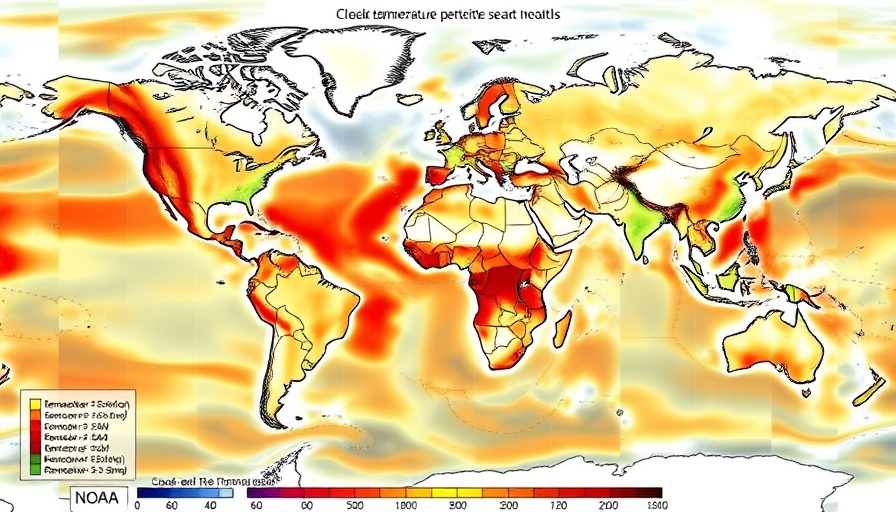
Unpacking the Met Office's Climate Data Dilemma
In an age where climate change awareness is at its peak, recent revelations about the UK’s Met Office have raised eyebrows among both scientists and the public. Independent investigations indicate that the Met Office struggles to trace the temperature data collected from 103 weather stations that no longer exist or were non-functional for extended periods. This revelation casts doubt on the credibility of their climate records, essential for understanding and addressing global warming.
Understanding the Impact of Data Gaps
Critics are quick to highlight how the Met Office's reliance on unverified methods, including "regression analysis," to imply continuity in climate records breaches established scientific protocols. For instance, one station, Scole, reported temperature data from as far back as 1959 despite its operational period being limited to 1971 to 1980. Such practices not only confuse data transparency but can also mislead policy-making and public understanding about climate urgency.
Importance of Transparency in Climate Science
The integrity of climate science depends on the verifiability of data sources. Lack of transparency regarding data origins not only endangers trust in scientific findings but may also fuel skepticism amid rising climate alarmism. As citizens strive for more accountable governmental agencies, the potential for misinterpretation rises if foundational data is inconsistent or unverifiable. Transparent and scientific rigor should be non-negotiable prerequisites for organizations like the Met Office, particularly concerning climate crisis narratives.
Moving Towards Better Accountability
There’s a growing demand from climate advocates and concerned citizens for more scrutiny over climate data analytics utilised by government bodies. As we navigate this critical period for environmental action, ensuring that data utilized to inform policy decisions is accurate, current, and reliable will be crucial in fostering public trust. Policymakers need to establish strict guidelines for data collection and reporting that enhance transparency and accountability.
 Add Row
Add Row  Add
Add 




 Add Row
Add Row  Add
Add 



Write A Comment